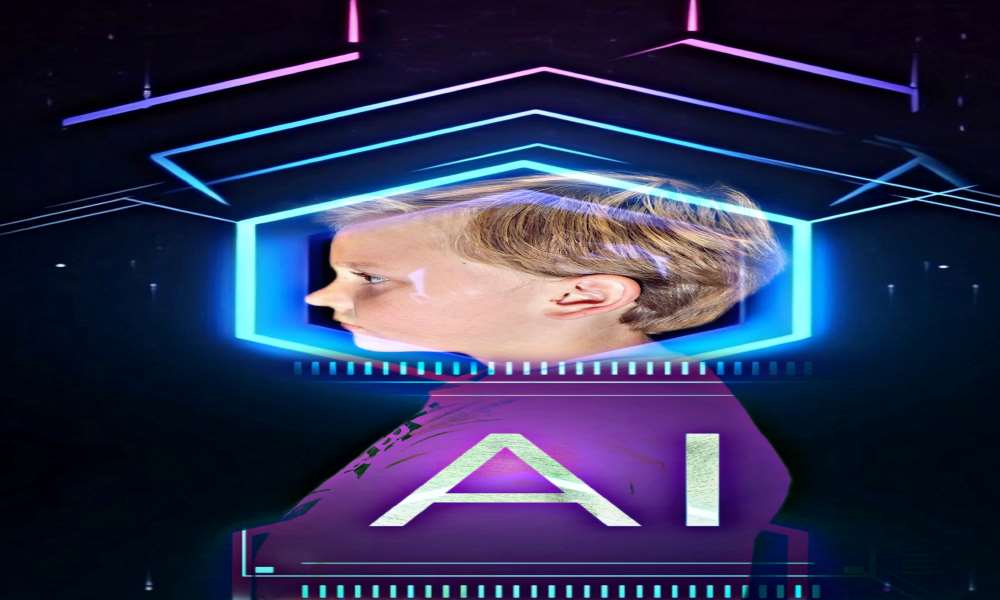AI - the good, the bad and the useful
Embrace the unknown with caution
Every day, we immerse ourselves in artificial intelligence (AI) through various activities such as using facial and biometric recognition technology on our phones and using search engines. Be equipped to ensure your child knows of the benefits and the dangers of AI.
"Artificial intelligence (AI) could become one of the most helpful tools in human existence if AI systems are aligned with existing and emerging internal policies, regulations, laws, best practices and standards for the responsible use of technology."
This is according to Jaylee Venter, a technical liaison officer at Namibian-based tech company Salt.
Venter believes AI can change "almost every industry around us."
A common misconception about AI is that it is "evil". But Venter urged users to remember that the AI code in itself is not evil.
"The person who writes the code with ill or malicious intent is the one who should be the responsible party for the deemed bad or evil artificial intelligence," she stressed.
Tech can be helpful
But how can parents and educators use AI to the benefit of their children and themselves?
Namibia recently introduced a pilot reading assessment tool at 20 schools called ‘Toby’, which was created by the UK company Lexplore.
Toby tracks the eye movements of students when they read. By tracing eye movements, Toby can detect learning disabilities.
"We struggled to get an uptake or appetite for Toby in Namibian schools," said Vanessa Maresch, the commercial expansion and empowerment specialist at Salt. However, the company that created the product, Mirai, acquired funding to pilot the project in Namibia.
After the assessment of a learner's reading skills, a report detailing the problems, along with recommendations on how to improve the learner's reading abilities, is provided.
Chatbots for children
Engaging in conversation with a chatbot can be an activity that children enjoy, whether or not their parents are aware of it.
Various articles have been published that address the risks and benefits of Chat GPT, its possible impact, safety measures, the best ways to use it, and the latest developments.
According to a ChatGPT blog, the chatbot may sometimes provide incorrect statements and respond to harmful instructions. "It will sometimes respond to harmful instructions or exhibit biased behaviour," the blog reads.
One thing is clear: chatbots should be used with parental guidance due to all the information out there that may be harmful or biased.
According to Unicef, young people and children often use chatbots to get help with traumatic or life-threatening situations – even when these chatbots aren’t designed to provide such support.
Most chatbots haven’t been set up to detect and respond to users in distress, increasing the risk of further harm. Therefore, the organisation created RapidPro, which is not AI-powered.
A safe chatbot should be able to detect high-risk keywords that are accompanied by compassionate responses.
RapidPro gives programmers the opportunity to access credible data regarding vital areas like education and child protection. It is open-source software that allows users to build mobile-based applications. This information has been used to create chatbots that can create awareness about mental health, Covid-19 information, and health information that is reliable and safe to use. In addition to RapidPro, Unicef has released a guideline for the implementation of safer chatbots.
Staying safe with AI
Using trusted brands: According to Venter, one of the ways to keep safe when using AI is by using trusted and known brands. One of these brands is Microsoft.
Empower yourself: Empowering yourself with knowledge and staying up-to-date with the latest developments in AI can help parents monitor the use of AI.
Being aware of the potential dangers of AI: Being aware of the safety hazards and dangers posed by AI or the internet will assist parents in better utilising the internet and AI-driven platforms.
Sharing your details online
It should be noted that the use of any internet platform can come with its own potential dangers. Sharing your personal information to make use of AI platforms will always carry some form of risk. Venter also explained that social media platforms also make use of AI in some form or another. "Your images and any other content there can be used, filtered, or altered as the organisation or provider chooses," Venter said. That is why it is always important to read through the terms and conditions that these platforms make available to you.
This is according to Jaylee Venter, a technical liaison officer at Namibian-based tech company Salt.
Venter believes AI can change "almost every industry around us."
A common misconception about AI is that it is "evil". But Venter urged users to remember that the AI code in itself is not evil.
"The person who writes the code with ill or malicious intent is the one who should be the responsible party for the deemed bad or evil artificial intelligence," she stressed.
Tech can be helpful
But how can parents and educators use AI to the benefit of their children and themselves?
Namibia recently introduced a pilot reading assessment tool at 20 schools called ‘Toby’, which was created by the UK company Lexplore.
Toby tracks the eye movements of students when they read. By tracing eye movements, Toby can detect learning disabilities.
"We struggled to get an uptake or appetite for Toby in Namibian schools," said Vanessa Maresch, the commercial expansion and empowerment specialist at Salt. However, the company that created the product, Mirai, acquired funding to pilot the project in Namibia.
After the assessment of a learner's reading skills, a report detailing the problems, along with recommendations on how to improve the learner's reading abilities, is provided.
Chatbots for children
Engaging in conversation with a chatbot can be an activity that children enjoy, whether or not their parents are aware of it.
Various articles have been published that address the risks and benefits of Chat GPT, its possible impact, safety measures, the best ways to use it, and the latest developments.
According to a ChatGPT blog, the chatbot may sometimes provide incorrect statements and respond to harmful instructions. "It will sometimes respond to harmful instructions or exhibit biased behaviour," the blog reads.
One thing is clear: chatbots should be used with parental guidance due to all the information out there that may be harmful or biased.
According to Unicef, young people and children often use chatbots to get help with traumatic or life-threatening situations – even when these chatbots aren’t designed to provide such support.
Most chatbots haven’t been set up to detect and respond to users in distress, increasing the risk of further harm. Therefore, the organisation created RapidPro, which is not AI-powered.
A safe chatbot should be able to detect high-risk keywords that are accompanied by compassionate responses.
RapidPro gives programmers the opportunity to access credible data regarding vital areas like education and child protection. It is open-source software that allows users to build mobile-based applications. This information has been used to create chatbots that can create awareness about mental health, Covid-19 information, and health information that is reliable and safe to use. In addition to RapidPro, Unicef has released a guideline for the implementation of safer chatbots.
Staying safe with AI
Using trusted brands: According to Venter, one of the ways to keep safe when using AI is by using trusted and known brands. One of these brands is Microsoft.
Empower yourself: Empowering yourself with knowledge and staying up-to-date with the latest developments in AI can help parents monitor the use of AI.
Being aware of the potential dangers of AI: Being aware of the safety hazards and dangers posed by AI or the internet will assist parents in better utilising the internet and AI-driven platforms.
Sharing your details online
It should be noted that the use of any internet platform can come with its own potential dangers. Sharing your personal information to make use of AI platforms will always carry some form of risk. Venter also explained that social media platforms also make use of AI in some form or another. "Your images and any other content there can be used, filtered, or altered as the organisation or provider chooses," Venter said. That is why it is always important to read through the terms and conditions that these platforms make available to you.






Comments
Namibian Sun
No comments have been left on this article